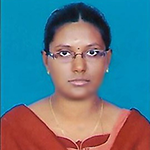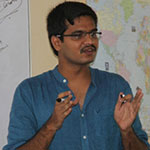Duration: 5 Months
Regular Batch – 6:00 p.m. to 8:00 p.m.
Weekend Batch – 9:30 a.m. to 12:30 p.m.
Both Regular & Weekend Batch
The Only Academy by Grandson of Bharat Ratna Sri.K.KAMARAJ
Join the No.1 IAS Academy for Political Science and International Relations
One of the most popular UPSC optional subjects for the UPSC Mains Exam is Political Science and International Relations (PSIR).
The Only IAS Academy with Consistent Result for past 10 years, We congratulate our Students who got the final selection of CSE-2018 Deepana Visveswari AIR 117, Abhishek Oswal AIR 369, Dharun Kumar AIR 413, Birathiviraj AIR 481 and other successful students of Kamaraj IAS Academy.
Register NowIt is known as 300+ optional because of its high scoring nature. It is the only optional with highest success ratio in the final selections. It is an intensive classroom/online program with more than 160 hours, spanning around 6 months. The sessions are aimed at improving the understanding of the candidates in all the key concepts and better answer writing. This program has six inbuilt test series which makes it wholistic. The classroom notes and study materials provided would be sufficient to tackle the mains examination.
The entire subject is handled by K.Kamaraj himself, who is the master teacher in Political Science and International Relations. His teaching style and writing techniques would ensure success for the sincere candidates.
Why to Choose PSIR as an optional?
- The Optional is much of an interdisciplinary in nature, where students from any sphere can study this optional with ease.
- Have a large overlap in the General Studies Paper namely:
- GS I – Overlaps with Indian Nationalism and Indian Society
- GS II – Covers the entire spectra of Polity and Governance & International Relations
- GS III – Covers specific areas of Economy and most parts of Internal Security
- GS IV – PSIR optional students have a huge advantage here as most of the philosophical theories and aspects of Governance are a part of optional as well.
- This is one of the most informative and necessary subject for the working in the bureaucracy
- It sharpens the student’s understanding of the organisational dynamics
- It helps in understanding the political institutions, political scenario and current political climate
- Overall this optional impacts students personality largely and helps them to be the civil servant of the hour

About The Faculty
Faculty Name: Mr.K.Kamaraj
- He specializes in Polity, Governance and Rights Issue, International Relations, Internal Security, Current Affairs, Ethics and Integrity.
- He has sound academic background in Political Science as he possess a post graduate degree in Political Science.
- His ability to correlate Political Science subject with current events makes the teaching easier and a favourite optional among aspirants.
- He has the distinction of clearing UPSC Civil Service Examination upto interview level thrice and also has the distinction of clearing TNPSC Group I examination.
- His passion for teaching and guidance made him the most wanted mentor and the best faculty for Political Science and International Relations in Chennai.
- He is the only expert in South India to mentor Political Science and International Relations students consistently for the past 15 years.

Key Features of the Course
Duration
5 Months
Timing
Regular Batch – 6:00 p.m. to 8:00 p.m.
Tentative Date of starting
Regular Batch – September 2nd Week
Weekend Batch – July 2nd Week
Includes
- Materials
- Test Series
- One-to-One Guidance
- Answer Writing Practice
Syllabus
Paper - I
1. Political Theory: meaning and approaches.
2. Theories of state: Liberal, Neo-liberal, Marxist, Pluiralist, post-colonial and Feminist.
3. Justice: Conceptions of justice with special reference to Rawl’s theory of justice and its communitarian critiques.
4. Equality: Social, political and economic; relationship between equality and freedom; Affirmative action.
5. Rights: Meaning and theories; different kinds of rights; Concept of Human Rights.
6. Democracy: Classical and contemporary theories; different models of democracy—representative, participatory and deliberative.
7. Concept of power: hegemony, ideology and legitimacy.
8. Political Ideologies: Liberalism, Socialism, Marxism, Fascism, Gandhism and Feminism.
9. Indian Political Thought: Dharamshastra, Arthashastra and Buddhist Traditions; Sir Syed Ahmed Khan, Sri Aurobindo, M. K. Gandhi, B. R. Ambedkar, M. N. Roy.
10. Western Political Thought: Plato, Aristotle, Machiavelli, Hobbes, Locke, John S. Mill, Marx, Gramsci, Hannah Arendt.
Indian Government and Politics
1. Indian Nationalism:
- (a) Political Strategies of India’s Freedom Struggle : Constitutionalism to mass Satyagraha, Noncooperation, Civil Disobedience; Militant and Revolutionary Movements, Peasant and Workers Movements.
- (b) Perspectives on Indian National Movement; Liberal, Socialist and Marxist; Radical Humanist and Dalit.
2. Making of the Indian Constitution: Legacies of the British rule; different social and political perspectives.
3. Salient Features of the Indian Constitution: The Preamble, Fundamental Rights and Duties, Directive Principles; Parliamentary System and Amendment Procedures; Judicial Review and Basic Structure doctrine.
4. (a) Principal Organs of the Union Government:
- (a) Envisaged role and actual working of the Executive, Legislature and Supreme Court.
- (b) Principal Organs of the State Government: Envisaged role and actual working of the Executive, Legislature and High Courts.
5. Grassroots Democracy: Panchayati Raj and Municipal Government; Significance of 73rd and 74th Amendments; Grassroot movements.
6. Statutory Institutions/Commissions: Election Commission, Comptroller and Auditor General, Finance Commission, Union Public Service Commission, National Commission for Scheduled Castes, National Commission for Scheduled Tribes, National Commission for Women; National Human Rights Commission, National Commission for Minorities, National Backward Classes Commission.
7. Federalism: Constitutional provisions; changing nature of centre-state relations; integrationist tendencies and regional aspirations; inter-state disputes.
8. Planning and Economic development: Nehruvian and Gandhian perspectives; Role of planning and public sector; Green Revolution, land reforms and agrarian relations; liberalization and economic reforms.
9. Caste, Religion and Ethnicity in Indian Politics.
10. Party System: National and regional political parties, ideological and social bases of parties; Patterns of coalition politics; Pressure groups, trends in electoral behaviour; changing socio-economic profile of Legislators.
11. Social Movement: Civil liberties and human rights movements; women’s movements; environmentalist movements.
Paper - II
Comparative Political Analysis and International Politics
1. Comparative Politics: Nature and major approaches; Political economy and political sociology perspectives; Limitations of the comparative method.
2. State in Comparative Perspective: Characteristics and changing nature of the State in capitalist and socialist economies, and advanced industrial and developing societies.
3. Politics of Representation and Participation: Political parties, pressure groups and social movements in advanced industrial and developing societies.
4. Globalisation: Responses from developed and developing societies.
5. Approaches to the Study of International Relations: Idealist, Realist, Marxist, Functionalist and Systems theory.
6. Key Concepts in International Relations: National interest, security and power; Balance of power and deterrence; Transational actors and collective security; World capitalist economy and globalisation.
7. Changing International Political Order:
- (a) Rise of super powers; Strategic and ideological Bipolarity, arms race and cold war; Nuclear threat;
- (b) Non-aligned Movement : Aims and achievements.
- (c) Collapse of the Soviet Union; Unipolarity and American hegemony; Relevance of non-alignment in the contemporary world.
8. Evolution of the International Economic System: From Brettonwoods to WTO; Socialist economies and the CMEA (Council for Mutual Economic Assistance); Third World demand for new international economic order; Globalisation of the world economy.
9. United Nations: Envisaged role and actual record; Specialized UN agencies—aims and functioning; need for UN reforms.
10. Regionalisation of World Politics: EU, ASEAN, APEC, AARC, NAFTA.
11. Contemporary Global Concerns: Democracy, human rights, environment, gender justice terrorism, nuclear proliferation.
India and the World
1. Indian Foreign Policy: Determinants of foreign policy; the institutions of policy-making; Continuity and change.
2. India’s Contribution to the Non-Alignment Movement Different phases; Current role.
3. India and South Asia:
- (a) Regional Co-operation : SAARC-past performance and future prospects.
- (b) South Asia as a Free Trade Area.
- (c) India’s “Look East” policy.
- (d) Impediments to regional co-operation: River water disputes; illegal cross border migration; Ethnic conflicts and insurgencies; Border disputes.
4. India and the Global South: Relations with Africa and Latin America; Leadership role in the demand for NIEO and WTO negotiations.
5. India and the Global Centres of Power: USA, EU, Japan, China and Russia.
6. India and the UN System: Role in UN Peace-keeping; Demand for Permanent Seat in the Security Council.
7. India and the Nuclear Question: Changing perceptions and policy.
8. Recent developments in Indian Foreign Policy: India’s position on the recent crises in Afghanistan, Iraq and West Asia, growing relations with US and Isreal; Vision of a new world order.
Previous Year Questions
Previous year Questions gives you a better idea of the need of UPSC and the ever evolving nature of the exam. PYQs are the tool that will help you to have a right direction in the preparation.
Optional Paper I
| Year | Question Paper |
|---|---|
| 2021 | 2021 Political Science and International Relations Paper-I.pdf |
| 2020 | 2020 POL_SC_I.pdf |
| 2019 | QP-CSM19-PolScIR-I.pdf |
| 2018 | 2018 POL-SCI-INTERNAL-PAPER-I.pdf |
Optional Paper II
| Year | Question Paper |
|---|---|
| 2021 | 2021 Political Science and International Relations Paper-II.pdf |
| 2020 | 2020 POL_SC_II.pdf |
| 2019 | QP-CSM19-PolScIR-II.pdf |
| 2018 | 2018 POL-SCI-INTERNAL-PAPER-II.pdf |





 "UPSC-2026-PRELIMS COMBINED MAINS PROGRAMME" NEW BATCH STARTS WITH ORIENTATION ON APRIL 14th,2025
"UPSC-2026-PRELIMS COMBINED MAINS PROGRAMME" NEW BATCH STARTS WITH ORIENTATION ON APRIL 14th,2025